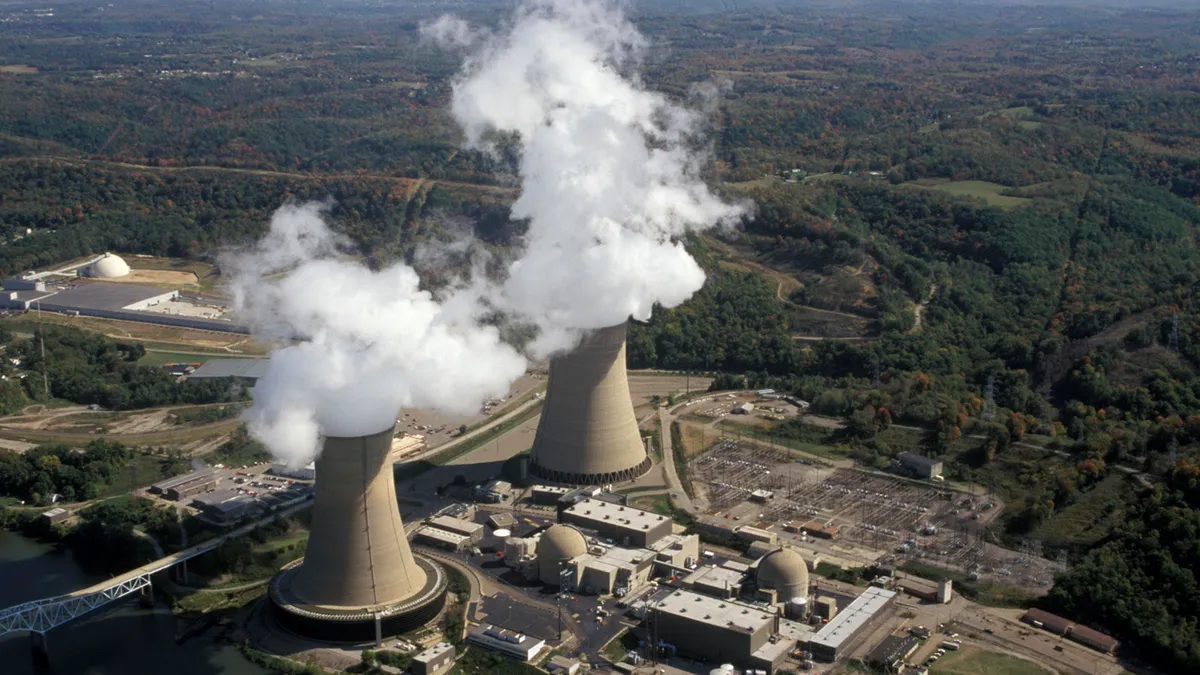Dive Brief:
- The Nuclear Regulatory Commission (NRC) is proposing cutting back the frequency and scope of inspections at the country's nuclear reactors, in part to reduce costs and make nuclear energy more economically viable.
- In its recommendation, which was made public on Tuesday, NRC staff said that the proposed changes "will result in the staff performing an appropriate level of oversight with less regulatory burden and expenditure of resources by focusing oversight on issues of greater safety significance."
- The proposal would reduce the time and extent of some annual inspections of American's more than 90 nuclear power plants, and cut other inspections from every two years to every three years.
Dive Insight:
The nuclear energy industry is facing a number of economic challenges, including large upfront capital costs and stiff regulatory oversight, making it increasingly difficult for the fuel to compete with cheaper resources.
To level the playing field and reduce financial burden on operators, the nuclear energy industry has advocated for a cut back in inspections, but opponents fear those cuts come at the cost of safety.
"Cutting corners on such critical safety measures may eventually lead to a disaster that could be detrimental to the future of the domestic nuclear industry," Rep. Frank Pallone, D-N.J., chair of the House Energy and Commerce Committee and other House Democrats said in a letter Monday to NRC Chair Kristine Svinicki.
The focus of the commission's inspection and oversight will remain on public health and safety, an NRC spokesperson told Utility Dive. However, not all commissioners are on board, including Commissioner Jeff Baran, who said the "NRC shouldn't perform fewer inspections or weaken its safety oversight to save money," according to CBS News.
The financial impact of the proposed changes remains unclear, but nuclear energy groups say they don't expect any impact to safety.
"Our outstanding performance as an industry is due to an exceptional culture of safety at the nation’s nuclear power stations and a strong, independent regulator," Maria Korsnick, president and CEO of the Nuclear Energy Institute, told Utility Dive in an emailed statement, adding the group is still reviewing the proposal, but is pleased by the move.
"We look forward to the Commission’s decision, and applaud the NRC staff effort to systematically evaluate the decades-old ROP to ensure that it reflects a more robust understanding of the current performance of the U.S. nuclear fleet," Korsnick said.
Nuclear power plant operators Duke, FirstEnergy Solutions and Exelon did not respond to requests for comment.














